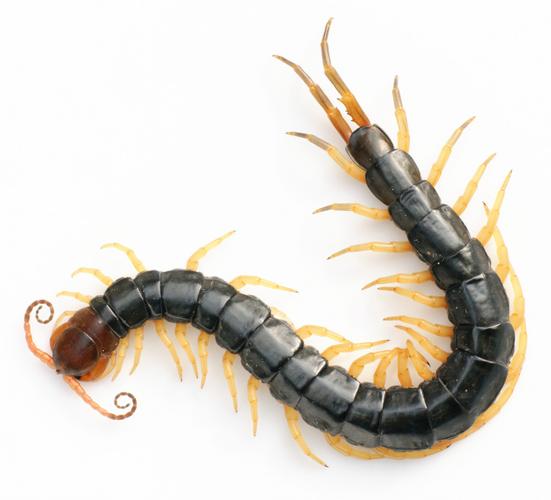
Centipede Bites: A Detailed Look into Their Effects and Prevention
Centipede bites can be a cause for concern, especially if you live in an area where these creatures are common. Understanding the nature of centipede bites, their effects, and how to prevent them is crucial. Let’s delve into the details to ensure you are well-informed about this topic.
What Are Centipedes?
Centipedes are elongated, segmented arthropods with a pair of antennae and a pair of legs on each segment, except for the first one. They are typically found in moist, dark environments and are known for their venomous bites.
How Do Centipede Bites Occur?
Centipede bites usually occur when these creatures feel threatened or when they are accidentally stepped on. Their venom is injected into the skin through their modified front legs, which are equipped with venom glands.
Effects of Centipede Bites
The effects of a centipede bite can vary from person to person. Here are some common symptoms:
| Symptoms | Description |
|---|---|
| Pain | Immediate and intense pain at the site of the bite |
| Swelling | Local swelling around the bite area |
| Redness | Redness and inflammation around the bite area |
| Itching | Itching around the bite area |
| Numbness | Numbness or tingling sensation around the bite area |
| Severe Symptoms | In rare cases, severe symptoms such as difficulty breathing, fever, and swelling of the throat may occur |
While most centipede bites are not life-threatening, they can be quite painful and may require medical attention, especially if you have an allergic reaction or if the bite becomes infected.
Preventing Centipede Bites
Preventing centipede bites involves taking certain precautions to minimize their presence in your living environment:

-
Keep your home clean and clutter-free, as centipedes thrive in moist, dark environments.
-
Seal any cracks or gaps in your home’s foundation and walls to prevent centipedes from entering.
-
Use dehumidifiers to reduce moisture levels in your home.
-
Remove any potential food sources, such as fallen fruit or pet food, that may attract centipedes.
-
Keep your yard well-maintained, removing debris and keeping grass short.
-
When outdoors, wear protective clothing and shoes to prevent accidental encounters with centipedes.
What to Do If You Are Bitten
If you are bitten by a centipede, follow these steps:
-
Wash the bite area with soap and water to prevent infection.
-
Apply a cold compress to reduce swelling and pain.
-
Take over-the-counter pain relievers, such as ibuprofen or acetaminophen, to manage pain and inflammation.
-
Seek medical attention if you experience severe symptoms, such as difficulty breathing, fever, or swelling of the throat.
-
Keep the bite area clean and dry to prevent infection.
By understanding the nature of centipede bites and taking appropriate precautions, you can minimize your risk of encountering these creatures and their venomous bites. Stay informed and take action to protect yourself and your loved ones.





